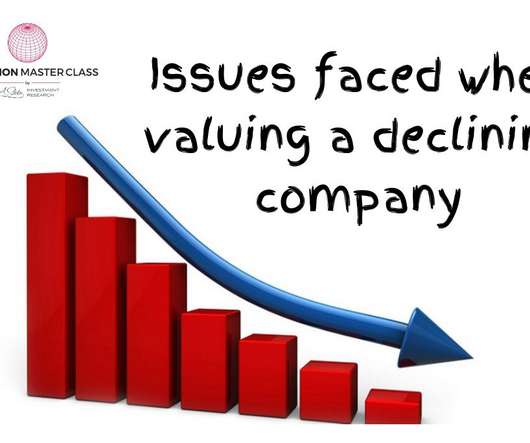The Complete Business Valuation Formula Guide: 10 Essential Methods
Equilest
FEBRUARY 24, 2024
Equity Multiplier Business Valuation Formula The equity multiplier is found using: Equity Multiplier = Current Value / EBITDA For instance, if a business has a current value of $1,000,000 and an EBITDA of $200,000, the equity multiplier would be: $1,000,000 / $200,000 = 5.














Let's personalize your content